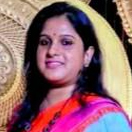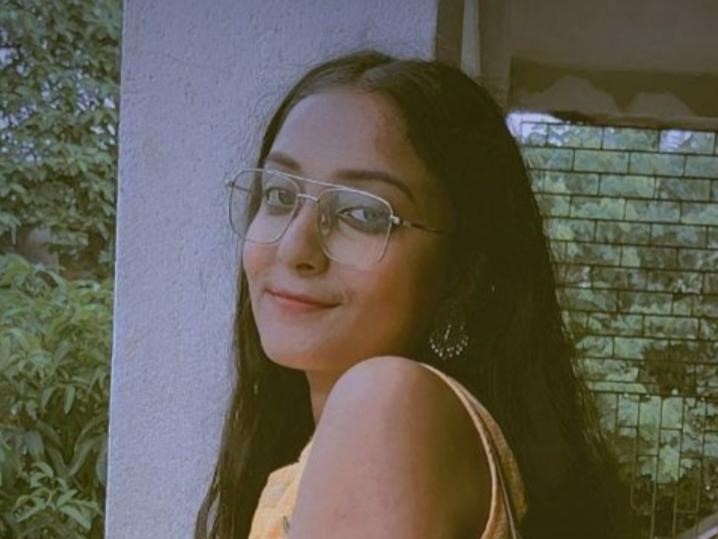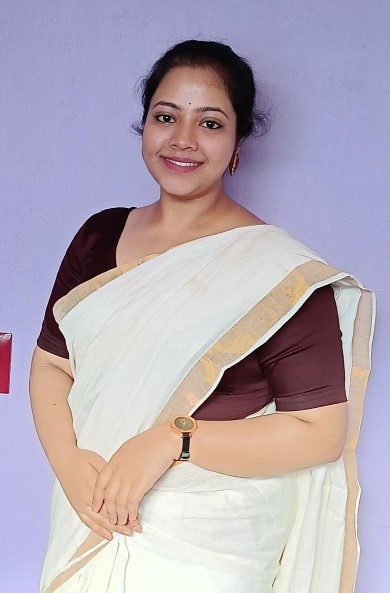
ABOUT THE DEPARTMENT
Initiation and brief overview
The Department of Psychology was started in 2014 as a General Department. The Department has a sustained good academic record. At present, the Psychology Department has a two-member faculty with two SACT teachers.
Vision and outlook
The study of Psychology is widespread today; different disciplines of psychology are widely recognised and frequently leveraged in an array of industries. A career in psychology could take multiple trajectories. The main objective of this course is to provide awareness about evolution of Psychology and various applications of this field. It also imparts knowledge about human behaviour and mental processes. The modern applications of psychology revolve around protecting people from emotional and physical harm and thus the knowledge will help the youth to understand and develop awareness about their own personality, identity and various psychological perils many people face daily. Despite the popular stereotype of the private practice therapist popularized by the media, students will also learn that psychology professionals actually have access to a wide variety of industries and fields, from education and criminal justice to marketing and politics. The course also broadens the understanding of gender identity and culture which in turn will help in creating change in our society. Lastly and essentially, this course on Psychology will help students in large because it can explain why people act the way they do. With this kind of insight an individual can improve on his/her decision making, stress management and behaviour based on understanding past behaviour to better predict future behaviour. All of the topics included in this specific course can help students to have a successful career, better relationships, more self confidence, improving health & well being and overall better communication.
Methods of teaching
Apart from classroom lectures or the chalk and talk method, the Department uses equipment for practical work, audio-visual aids such as power-point presentations and the like, to stimulate learning interests. Regular assessments through written classwork and class-tests ensure that the students are well prepared for their final end-semester examinations.
Infrastructure
The Department maintains a specific Laboratory with all relevant Laboratory Equipment necessary for practical work.
Email: psychology@rksmvv.ac.in
Programme Outcome for Bachelor in Arts (General)
A graduate student in arts/social sciences/humanities shall be
PO1: Communication Skills: Confident to speak, write, read, listen and understand the English language and one or more Indian languages. Relate the ideas, knowledge, books, and people. Think and decide rationally, and adopt technology and electronic/print media in disseminating thoughts, facts and realities.
PO2: Social responsibility: Develop an obligation to act for the benefit of society at large. Cultivate the responsibility to maintain a balance between the economy and the ecosystems. Nurture a moral obligation to minimize the adverse effect on those immediately around them.
PO3: Critical, logical and rational thinking: Acquire the ability for objective, rational, skeptical, logical, and unbiased analysis of factual evidences to form a judgment or conclusion. Enhance the process of rational thinking, problem solving and analytical evaluation from different perspectives.
PO4: Enlightened and effective Citizenship: Cultivate progressive citizenship for a knowledge society for peace and prosperity of nations and the world. Develop clear, rational and progressive thinking. Participate in decision-making concerning the society and upholding national development, integrity, unity and fraternity.
PO5: Values and Ethics: Recognize the importance, worth and usefulness of principles and standards of behavior and moral dimensions of one’s own decisions and judgements. Be aware of various aspects of social responsibility through social, outreach, and cultural activities during the programme. Shape a personality which understands and appreciates religious and cultural diversity and plurality.
PO6: Sustainable development: Understand, organize and promote the principle of human development goals by sustaining the ability of natural systems, natural resources and ecosystem services upon which the economy and society depends.
PO7: Life-long process of Learning: Cultivate the proficiency to engage in independent, life-long and progressive learning abilities in the broadest context of changing socio politico-economic-cultural and technological scenario.
PO8: Employment Skills: Be prepared for employment in various fields by developing reading, writing and comprehension skills which make the students fit and eligible for jobs in the government and non-government sectors. A broad spectrum study of various subjects helps the students compete in various examinations for employment after graduation.
Programme Specific Outcomes:
CBCS (GE)
PSO1: To understand and develop knowledge about the basic concepts in psychology and various theoretical foundations of branches of Psychology and to develop an understanding of how various theories and methods of Psychology apply to the real life settings.
PSO2: To understand and comprehend the role of culture in evaluating behaviours and exploring psychological insights in the Indian thought traditions.
PS03: To analyse the relationships between brain function and behaviour, and the environment and behaviour, applying what they learn to illuminate our understanding and improve the world around us.
PSO4: The process of synthesizing information in psychology involves weaving together diverse theories, empirical studies, and conceptual frameworks to formulate cohesive and insightful perspectives.
PSO5: To evaluate various therapeutic techniques to determine the success in achieving defined goals and also to assess individual’s behaviour, personality, cognitive abilities and several other domains.
Paper Name & Course Outcome
GE 01: Orientation to Psychology: To provide an overview of the basic concepts in psychology to help better communication and enhance adjustments in life and work.
GE 02: Youth, Gender and Identity: To equip learners with an understanding of the concepts of Youth, Gender and Identity and their interface and also to inculcate sensitivity to issues related to Youth, Gender and Identity within socio cultural context.
GE 03: Psychology for Health and Wellbeing: It aims to understand the spectrum of health and illness for better health management.
GE 04: Psychology at Work: Students will understand the meaning and theoretical foundations of Industrial and Organizational Psychology and to develop an understanding of how the various theories and methods of Industrial and Organizational Psychology apply to the real work settings.
DSE 01: Clinical Psychology: To introduce the basic concepts of the growing approach of positive psychology and understand its applications in various domains.
DSE 02: Developmental Psychology, Contemporary approaches: To understand the role of culture in evaluating behaviours and exploring psychological insights in the Indian thought traditions.
GEC 01: Psychology and Media: Students will understand the effect of media on human psyche and to develop a critical awareness of the underlying psychological processes and mechanisms.
GEC 02: Intergroup relations: To familiarise the significance of healthy inter group relations for the society and learn the strategies of resolving intergroup conflicts.
SEC 01: Stress Management: Students will learn how they can make adjustments and manage to cope with stress more effectively.
SEC 02: Effective Decision Making: Students will learn various strategies to make good decisions in life.
After completion of the course students will be able to:
| COS | Knowledge Level Bloom’s Taxonomy | PSOs Mapping | |
| CO1 | To provide an overview of the basic concepts in psychology to help better communication and enhance adjustments in life and work. | Understand, knowledge,
application
|
1,2,3,5,7 |
| CO2 | To equip learners with an understanding of the concepts of Youth, Gender and Identity and their interface and also to inculcate sensitivity to issues related to Youth, Gender and Identity within socio cultural context. | Understand, knowledge, comprehend | 1,2,4,5 |
| CO3 | It aims to understand the spectrum of health and illness for better health management. | Understand, knowledge,
Analyse, |
1,2 |
| C04 | Students will understand the meaning and theoretical foundations of Industrial and Organizational Psychology and to develop an understanding of how the various theories and methods of Industrial and Organizational Psychology apply to the real work settings. | Understand, knowledge, comprehend, analyse | 1,2,5,8 |
| CODSE01 | To introduce the basic concepts of the growing approach of positive psychology and understand its applications in various domains.
|
Understand, knowledge, comprehend, analyse , synthesis, applications | 1,2,3,5 |
| CODSE02 | To understand the role of culture in evaluating behaviours and exploring psychological insights in the Indian thought traditions. | Understand,
Knowledge, analysis, evaluation |
1,2,5 |
| COGEC01 | Students will understand the effect of media on human psyche and to develop a critical awareness of the underlying psychological processes and mechanisms. | Understand,
Knowledge, analysis, comprehend |
1,2,3,4 |
| COGEC02 | To familiarise the significance of healthy inter group relations for the society and learn the strategies of resolving intergroup conflicts. | Understand,
Knowledge, analysis, interpret |
1,2,4,5 |
| COSEC01 | Students will learn how they can make adjustments and manage to cope with stress more effectively. | Understand, knowledge, analyse, evaluation | 1,2,7 |
| COSEC02 | Students will learn various strategies to make good decisions in life | Understand,
Knowledge, comprehend, analyse, evaluation |
1,2,3,4,8 |
PO CO Matrix:
| PO1 | PO2 | PO3 | PO4 | PO5 | PO6 | PO7 | PO8 | |
| CO1 | ||||||||
| CO2 | ||||||||
| CO3 | ||||||||
| CO4 | ||||||||
| CODSE01 | ||||||||
| CODSE02 | ||||||||
| COGEC01 | ||||||||
| COGEC02 | ||||||||
| COSEC01 | ||||||||
| COSEC02 |
NEP
Programme Outcome:
Programme Outcome for Bachelor in Arts (General)
A graduate student in arts/social sciences/humanities shall be
PO1: Communication Skills: Confident to speak, write, read, listen and understand the English language and one or more Indian languages. Relate the ideas, knowledge, books, and people. Think and decide rationally, and adopt technology and electronic/print media in disseminating thoughts, facts and realities.
PO2: Social responsibility: Develop an obligation to act for the benefit of society at large. Cultivate the responsibility to maintain a balance between the economy and the ecosystems. Nurture a moral obligation to minimize the adverse effect on those immediately around them.
PO3: Critical, logical and rational thinking: Acquire the ability for objective, rational, skeptical, logical, and unbiased analysis of factual evidences to form a judgment or conclusion. Enhance the process of rational thinking, problem solving and analytical evaluation from different perspectives.
PO4: Enlightened and effective Citizenship: Cultivate progressive citizenship for a knowledge society for peace and prosperity of nations and the world. Develop clear, rational and progressive thinking. Participate in decision-making concerning the society and upholding national development, integrity, unity and fraternity.
PO5: Values and Ethics: Recognize the importance, worth and usefulness of principles and standards of behavior and moral dimensions of one’s own decisions and judgements. Be aware of various aspects of social responsibility through social, outreach, and cultural activities during the programme. Shape a personality which understands and appreciates religious and cultural diversity and plurality.
PO6: Sustainable development: Understand, organize and promote the principle of human development goals by sustaining the ability of natural systems, natural resources and ecosystem services upon which the economy and society depends.
PO7: Life-long process of Learning: Cultivate the proficiency to engage in independent, life-long and progressive learning abilities in the broadest context of changing socio politico-economic-cultural and technological scenario.
PO8: Employment Skills: Be prepared for employment in various fields by developing reading, writing and comprehension skills which make the students fit and eligible for jobs in the government and non-government sectors. A broad spectrum study of various subjects helps the students compete in various examinations for employment after graduation.
NEP ( MINOR)
PSO1: To understand and develop knowledge about the basic concepts in psychology and various theoretical foundations of branches of Psychology and to develop an understanding of how various theories and methods of Psychology apply to the real life settings.
PSO2: To understand and comprehend the role of culture in evaluating behaviours and exploring psychological insights in the Indian thought traditions.
PS03: To analyse the relationships between brain function and behaviour, and the environment and behaviour, applying what they learn to illuminate understanding and improve the world around us.
PSO4: The process of synthesizing information in psychology involves weaving together diverse theories, empirical studies, and conceptual frameworks to formulate cohesive and insightful perspectives.
PSO5: To evaluate various therapeutic techniques to determine the success in achieving defined goals and also to assess individual’s behaviour, personality, cognitive abilities and several other domains.
Paper Name & Course Outcome
MIN 01: Orientation to Psychology: To provide an overview of the basic concepts in psychology to help better communication and enhance adjustments in life and work.
MIN 02: Youth, Gender and Identity: To equip learners with an understanding of the concepts of Youth, Gender and Identity and their interface and also to inculcate sensitivity to issues related to Youth, Gender and Identity within socio cultural context.
MIN 03: Psychology for Health and Wellbeing: It aims to understand the spectrum of health and illness for better health management.
MIN 04: Psychology at Work: Students will understand the meaning and theoretical foundations of Industrial and Organizational Psychology and to develop an understanding of how the various theories and methods of Industrial and Organizational Psychology apply to the real work settings.
MIN 05: Clinical Psychology: To introduce the basic concepts of the growing approach of positive psychology and understand its applications in various domains.
MIN 06: Developmental Psychology, Contemporary approaches: To understand the role of culture in evaluating behaviours and exploring psychological insights in the Indian thought traditions.
MDC 01: Orientation to Psychology: To provide an overview of the basic concepts in psychology and its subfields, such as human behaviour, human development and cognitive functions.
After completion of the course students will be able to:
| COS | Knowledge Level Bloom’s Taxonomy | PSOs Mapping | |
| COMIN01 | To provide an overview of the basic concepts in psychology to help better communication and enhance adjustments in life and work. | Understand, knowledge,
application
|
1,2,3,5 |
| COMIN02 | To equip learners with an understanding of the concepts of Youth, Gender and Identity and their interface and also to inculcate sensitivity to issues related to Youth, Gender and Identity within socio cultural context. | Understand, knowledge, comprehend | 1,2,5 |
| COMIN03 | It aims to understand the spectrum of health and illness for better health management. | Understand, knowledge,
Analyse, |
1,2 |
| COMIN04 | Students will understand the meaning and theoretical foundations of Industrial and Organizational Psychology and to develop an understanding of how the various theories and methods of Industrial and Organizational Psychology apply to the real work settings. | Understand, knowledge, comprehend, analyse | 1,2,5,8 |
| COMIN05 | To introduce the basic concepts of the growing approach of positive psychology and understand its applications in various domains. | Understand, knowledge, comprehend, analyse , synthesis, applications | 1,2,3,5 |
| COMIN06 | To understand the role of culture in evaluating behaviours and exploring psychological insights in the Indian thought traditions. | Understand,
Knowledge, analysis, evaluation |
1,2,5 |
| COMDC01 | To provide an overview of the basic concepts in psychology and its subfields, such as human behaviour, human development and cognitive functions. | Understand, knowledge, comprehend
application
|
1,2,5,7 |
PO CO Matrix:
| PO1 | PO2 | PO3 | PO4 | PO5 | PO6 | PO7 | PO8 | |
| COMIN01 | ||||||||
| COMIN02 | ||||||||
| COMIN03 | ||||||||
| COMIN04 | ||||||||
| COMIN05 | ||||||||
| COMIN06 | ||||||||
| COMDC01 |

State Aided College Teacher, II
View Profile| Academic Calendar | Download |
| Academic Calendar January 23- December 23 | View |
| Academic Calendar June 2022- December 2022 | View |
| Routine | Download |
| Routine 2018 to 2023 | View |
| Lesson Plan | Download |
| Lesson Plan | View |
| Study Material | Download |
| psychoanalytic theory | View |
Study materials links
https://www.thebalancemoney.com/get-along-better-with-coworkers-525457
https://www.betterup.com/blog/healthy-habits
| Continuous Evaluations | Download |
| Continuous Evaluations Semester IV 2021 | View |
| Continuous Evaluations Semester II 2020 | View |
Department of Psychology 2018-2019
| Sl. No. | Date | Event | Resource Person | Title |
| 1. | 15th September 2018 | workshop | Tagore foundation school participated in the group discussion. | Inclusive education and differently able children.
|
2019-2020
| Sl. No. | Date | Event | Resource Person | Title |
| 1.
2. |
12thMarch,2019
25thMarch,2019
|
Extension Lecture
Extension Lecture |
Dr.Homprabha Barua.
Assistant Professor, Vivekananda College
Dr. Suchismita Sinha , SACT, Sarojini Naidu College For Women |
Changes of Women role in Society
Stress management Techniques |
2020-2021
| Sl. No. | Date | Event | Resource Person | Title |
| 1.
2. |
7th February,2020
27thFebruary,2020
|
Extension Lecture
Extension Lecture |
Prof. Shaona Sengupta, Assistant Professor
Dr.A.P.J.AbdulKalamGovernment College
Prof. Ritwik Saha, Assistant Professor Dr.A.P.J.AbdulKalamGovernmentCollege
|
Mental health &Depression’,
‘Motivation&I/OPsychology’
|
2021-2022
| Sl. No. | Date | Event | Resource Person | Title |
| 1. | 11th February, 2021
24th February, 2021
7th January 2021
27th January, 2022
22nd February, 2022
2nd March, 2022 |
Extension Lecture
Extension Lecture
Webinar
Extension Lecture
Extension Lecture
Seminar |
Mitali Mallick, SACT, Muralidhar Girl’s College, CU.
Dr. Manisha Dasgupta, Associate Professor, Department Of Psychology, University College of science. Technology and agriculture, CU.
Dr. Sreemoyee Tarafder, Assistant Professor, WBSU
Mr. Soumen Ghosh, Faculty of Department of Psychology, Naba Barrackpur Prafulla Chandra Mahavidyalaya.
Ms. Shweta Lal, Faculty of Department of Psychology, Sarojini Naidu College for Women
Prof. Pushpa Misra and Dr. Payel Rai ChowdhuryDu |
Affective Processes.
Psycho social Development –Erik Erikson’s Theory.
Women Mental Health and Stress Management Techniques.
Moral Development
“Sigmund Freud’s Theory on Psychoanalysis
“Sexual Harassment at Workplace and Educational institutions: Right to Mental Health” |
2022-2023
| Sl. No. | Date | Event | Resource Person | Title |
| 1. | 22nd September, 2022
20th January, 2023
10th February, 2023
28th June, 2023
|
Seminar
Extension Lecture
Workshop
Workshop |
Ms. Aiswarjya Banerjee, Faculty of RKSMVV and Mrs. Soma Marik , Faculty of RKSMVV
Dr. Anwesha Chakrobarty, Assistant Professor, Sarojini Naidu College for women
Mrs. Atreyee Chandra, Clinical Psychologist
Minakshi Sanyal, Koyel Ghosh Madhurima Ghosh from Sappho for Equality |
“Suicide Prevention: From Historical and Psychological Lenses”.
Applications of Psychology on Work, Law and Health
Beat your Exam stress
Understanding the Pride movements: Diverse Expressions of the LGBTIQ communities |
| Event Reports | Download |
| Event Report Psychology | View |
| Advanced-and-Slow-Learner-Policy-Statement | Download |
| Advanced and Slow Learner Policy Statement | View |
RESULTS
University Results
| Year | Appeared | Passed | 1ST Class | University Ranks |
| 2017 | 1 | 1 | – | – |
| 2018 | 1 | 1 | – | – |
| 2019 | 2 | 2 | – | – |
| 2020 | – | – | – | – |
| 2021 | – | – | – | – |

Triparna Modak, Education department (2021-2023)
Currently a student of PG diploma course of psychological counselling
The psychology department at my college is a vibrant hub of learning, research, and personal growth. With dedicated professors who inspire critical thinking, the department offers a diverse curriculum that balances theory and practice. From exploring foundational concepts to engaging in advanced research, students are encouraged to dive deep into the complexities of human behaviour. The department also fosters a supportive community through workshops, events, and mentorship programs, creating an environment where everyone feels valued. With opportunities for internships and hands-on experience, the psychology department equips its students with the knowledge and skills needed to excel in their future careers.

Shreya Bhadury, Bengali department (2020-2023)
Currently a student of PG diploma course of psychological counselling
I had psychology as my pass subject during graduation. I could understand psychology very easily because all of my teachers (Department of Psychology) took great care to explain the subject to us very easily and because of this I am very grateful for the invaluable knowledge and guidance. I give a special thanks to my exceptional teachers whose mentorship has been a very encouraging for my future decisions. and later I got a lot of interest in this subject so I planned my future with it and currently doing a course on Psychological Counselling in this college.